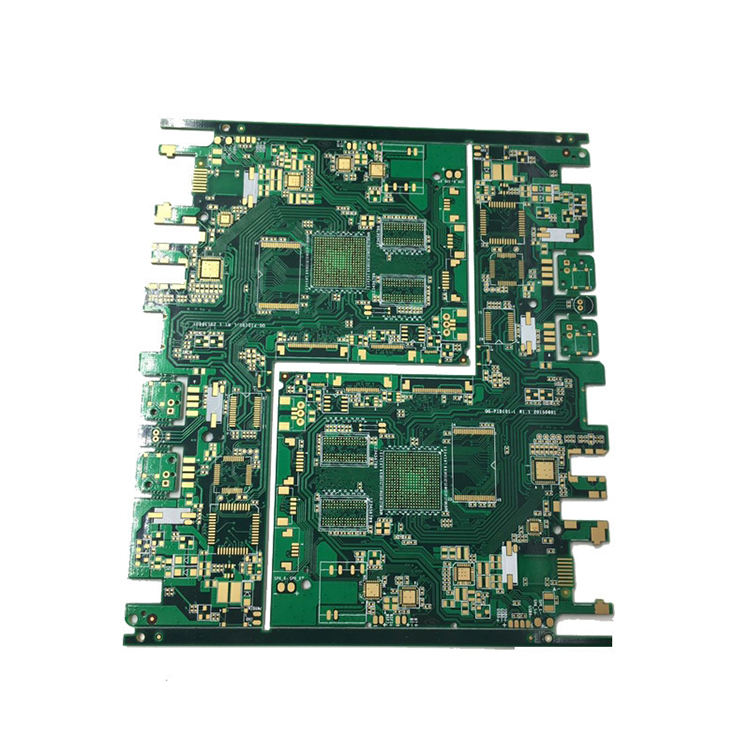FR4 PCB
What is FR4 PCB Board?
A print circuit board with FR4 is called the FR4 printed circuit board. It is a printed circuit board that essentially uses the FR4 sheets.
At first, the FR4 is used in the insulating layer of the circuit board. Then, we add a copper layer on either side of the FR4 sheet.
As a result of this, it becomes CCL (Copper Clad Laminate). Due to FR4, CCL acts as an insulating material.
It is then used in manufacturing FDR PCB boards
The FR4 gives PCB boards a strength. Moreover, they are great at absorbing moisture and resisting fire.
Therefore, these boards are very popular in the market.
Features of FR4 to Consider When Choosing FR4 PCB
When choosing or ordering FR4 printed circuit board, an electrical engineer or technician must look at the following features:
Thickness:
The thickness of an FR4 sheet varies depending on your project. Ideally, you will require an FR4 with a thickness of 1.3 thou to 3 inches.
Impedance Matching:
The impedance matching is very important in high-frequency PCBs. It helps to maintain the function of the board of directors. It also determines the capacitance of the layers in multi-layered boards.
Space & Flexibility:
Depending on your project, you can choose an FR4 material for your PCB boards. Mostly, people prefer thinner sheets as they take less space and are more flexible.
Weight of the FR4:
Since, the thickness of the board determines its weight. For lighter products, choose 2 Layer FR4 PCB board with lighter weight.
Thermal Conductivity:
To determine the temperature management of the FR4, look at the value of the thermal coefficient of the dielectric constant. However, FR4 is heat resistant and it is one of the main reasons for its popular use.
Types of FR4 Materials and Parameters
Materials of FR4: In FR4 PCB fabrication, 2 Layer FR4 PCB board doesn’t use any specific types of material. However, to determine the material of manufacturing, the grade of material is more important than the type of material.
NEMA LI 1-1998 specification defines the grading system for FR4 materials.
Types of FR4 Printed Circuit Boards:
The types of FR4 boards depends on the method of classification.
According to the number of layers, they are divided into the following types:
Single-sided FR4 PCB
Double-Sided PCB
Multi-layer PCB
The following is an example of what the parameters for FR4 printed circuit boards look like:
| Parameter |
Standard Values (may vary) |
| Specific Gravity/ Density |
1.850 g/cm3 |
| Temperature Index |
284 °F |
| Water Absorption value |
<0.10% |
| Thermal Conductivity |
0.29 W/(M·K) through-plane |
| 0.81 W/(M·K) in plane |
| Bond strength |
>1,000 kg |
| Flexural strength– LW |
> 415 MPa |
| Flexural strength– CW |
> 345 MPa |
| Dielectric strength |
20 MV/m |
| Relative permittivity |
4.4 |
| Dissipation factor |
0.017 |
| Dielectric constant permittivity |
4.70 max. |
| Glass transition temperature |
>120 degrees (Celsius) |
| Young's modulus |
24 GPa 21 GPa |
| LW |
| CW |
| Coefficient of thermal expansion |
X (10−5 K−1) |
| x-axis |
1.4 |
| y-axis |
1.2 |
| z-axis |
7.0 |
| Poisson's ratio |
0.13 0.12 |
| LW |
| CW |
| Sound speed |
3602 m/s 3369 m/s |
| LW |
| CW |
| LW acoustic impedance |
6.64 |
FR4 PCB Specification of Smart Chiplink
At Smart chiplink, we offer a variety of PCB manufacturing. Our FR4 printed circuit boards have the following specifications:
| |
Value |
| Layers |
1-50 |
| Material |
FR4 |
| FR4 Thickness |
1.34 thou to 3 in. |
| FR4 Thermal Conductivity |
0.29 W/(M·K) through-plane |
| 0.81 W/(M·K) in plane |
| Coefficient of thermal expansion |
X (10−5 K−1) |
| x-axis |
1.4 |
| y-axis |
1.2 |
| z-axis |
7.0 |
PCB

 English
English Español
Español Português
Português русский
русский français
français 日本語
日本語 Deutsch
Deutsch Tiếng Việt
Tiếng Việt Italiano
Italiano Nederlands
Nederlands ไทย
ไทย Polski
Polski 한국어
한국어 Svenska
Svenska magyar
magyar Malay
Malay বাংলা
বাংলা Dansk
Dansk Suomi
Suomi हिन्दी
हिन्दी Pilipino
Pilipino Türk
Türk Gaeilge
Gaeilge عربى
عربى Indonesia
Indonesia norsk
norsk čeština
čeština Ελληνικά
Ελληνικά Українська
Українська Javanese
Javanese فارسی
فارسی български
български ລາວ
ລາວ Latine
Latine Қазақ
Қазақ Euskal
Euskal Azərbaycan
Azərbaycan slovenský
slovenský Македонски
Македонски Lietuvos
Lietuvos Eesti Keel
Eesti Keel Română
Română Slovenski
Slovenski Српски
Српски 简体中文
简体中文 Беларус
Беларус













